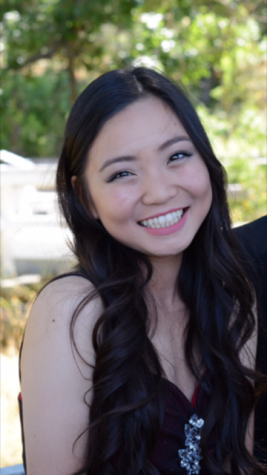Just be yourself, but also be who colleges want you to be
December 17, 2016
As the entrance of fall in San Ramon is announced by the 40-degree mornings that spike into 70-degree afternoons, high school seniors around the nation begin to think about how their future is weighed in the gnarly, evil 650-words-or-less hands of college applications. The stressful process of throwing money, time and a lifetime of preparation via schoolwork and extracurriculars, all for only a slight possibility to enter, made me wonder about what colleges really see in their applicants. Colleges always want to hear about what makes you, you — but don’t they seem to be looking more for a mold and less for a person?
While in the midst of college apps myself, I perused a book called “The Dirty Little Secrets: Getting Into a Top College” (don’t ask — it was my sister’s, who, hey, attends UC Berkeley so maybe it worked) by Pria Chatterjee, who described applicants not as individuals, but as categories: a Standard Strong applicant, a SuperCombo, a Standard Legacy. Even though they had unique extracurriculars and home life situations, these people weren’t shining individuals with personalities — they were just more applicants, labeled and tossed into the pile with all the others who matched the same criteria.
It’s understandable that to weed through thousands upon thousands of applications, colleges must categorize everyone to find the diamond in the rough. But the very fact that there are how-to books for getting into the top schools (quite conveniently all written by Harvard graduates) shows that there is a method, and there is a path: a path to follow, a path of conformity.
To be special enough to be selected, you have to be like everyone else who was special enough to be selected. While your personality is indeed your own, there’s a formula: strong essays, high GPA and test scores, maybe some fascinating extracurricular or award, preferably relating to your intended major. Can you be the remarkably unique individual that you are because of the combination of traits that you have, say, as someone who flunks school but is secretly an avid researcher of insomnia, who likes to eat ice cream on cold rainy nights and is scared of spiders? Would that person, who could have become the next Nobel Prize-winning Einstein of sleep, be admitted to any top college given their lackluster grades, weak writing skills, and seeming lack of ambition?
I, like many of my peers, admit to digging deep into the bowels of the internet or through volumes of college tip books to unearth the secrets of college acceptance. Even though counselors, teachers and other supportive adults emphasize that “college isn’t everything” — and for good reason, because it isn’t — many students who pursue higher education still seek to access the resources, knowledge and reputation of a respected school, in which multiple alumni are business geniuses, tech moguls or former presidents of the United States. With overwhelming demand for limited admission space, top universities have the power to pluck out those who best fit their school, forcing students to adapt to the desirable mold rather than maintain their originality.
Indeed, despite the college emphasis on individuality in applications, the true skill that lets you slip your way into MIT is to be outstanding in a conforming manner. You have to follow the formula, or else you’ll be shuffled into the depths of the rejection pile without so much as a second glance. Even if, on the off chance, the strange school-flunking insomnia-researching character were to be admitted to a top college, they would struggle and fall behind the mass of conforming college students who entered because of their SuperCombo status, and have spent their entire lives stuffing themselves into the mold of a desirable college applicant.
Conformity thus creates stability within society, but also confines it. Constant pressures to “fit in” may help humans, as a naturally social species, learn to adapt and work together, but the wacky few who “stand out” suffer. Maybe, because of always being stigmatized as the weird ones, the true individuals who drift away from the rest of the sheep never fully live up to their potential, or their greatness is realized posthumously, but they live a shunned life. After all, Copernicus’s thinking that the Earth actually revolves around the Sun never gave him any brownie points until it was found to be true, and Vincent van Gogh, despite his widely recognized paintings, was seen as less of an artistic eccentric and more of a mentally unstable, one-eared creep in his time.
Colleges, similarly, want applicants who stand out, but in the best way possible — a way that fits the mold of greatness. Of course they wouldn’t want to bank their limited space and educational opportunities on someone who isn’t predicted to be successful in the future. Yet, although they never reveal their secrets of selection, the “formula” detailed in countless “get into college” books seems to have worked for many no matter how many times colleges say they use a “holistic review” to analyze an applicant.
Our society, thus, thrives on conformity, and college acceptances are only a glimpse of this phenomenon. We may claim that we appreciate the wacky individuals in order to appear more accepting, but we ultimately still regard them as outcasts. Even for describing what makes you, YOU, there’s an ideal personality to fit into.


